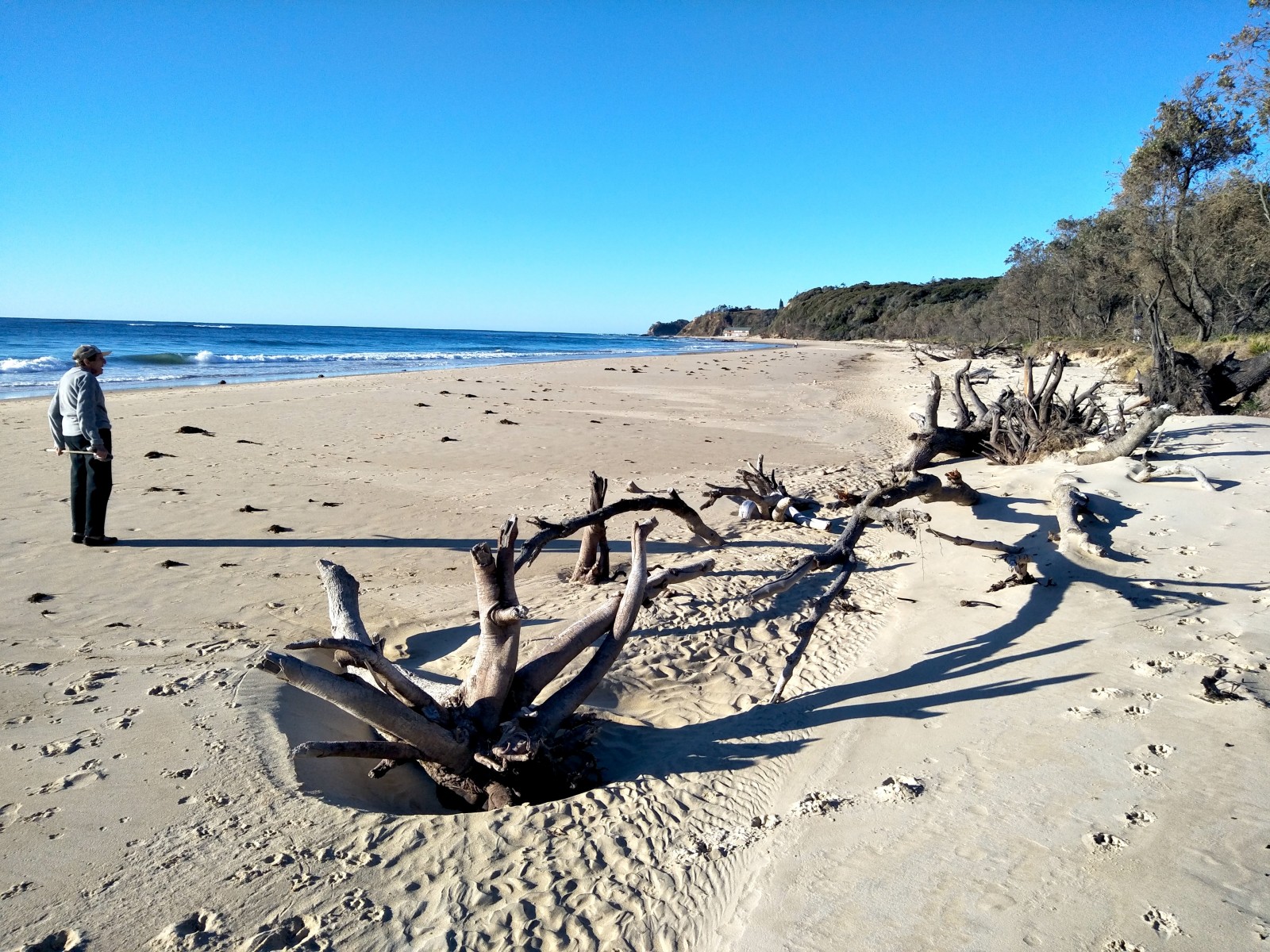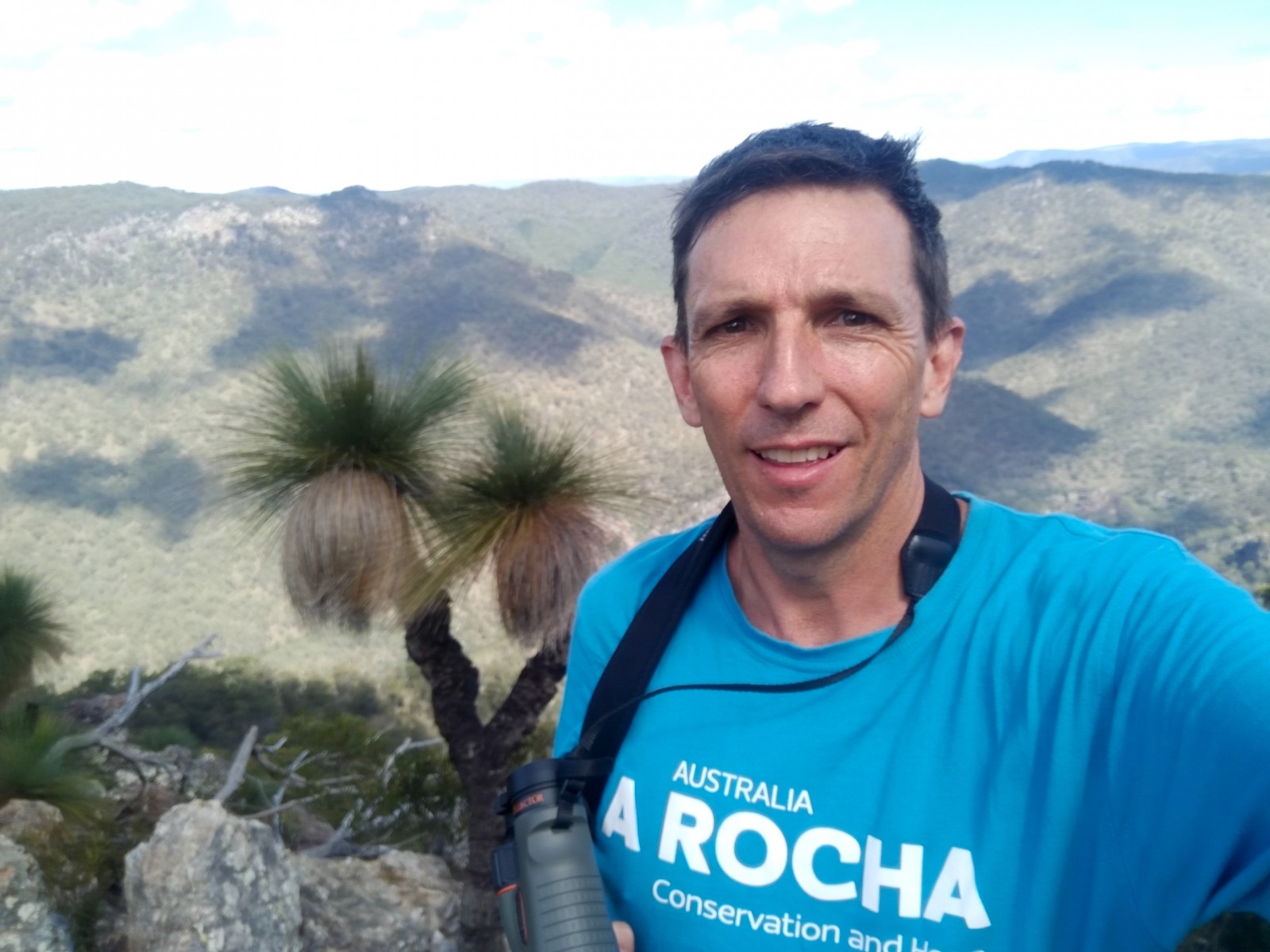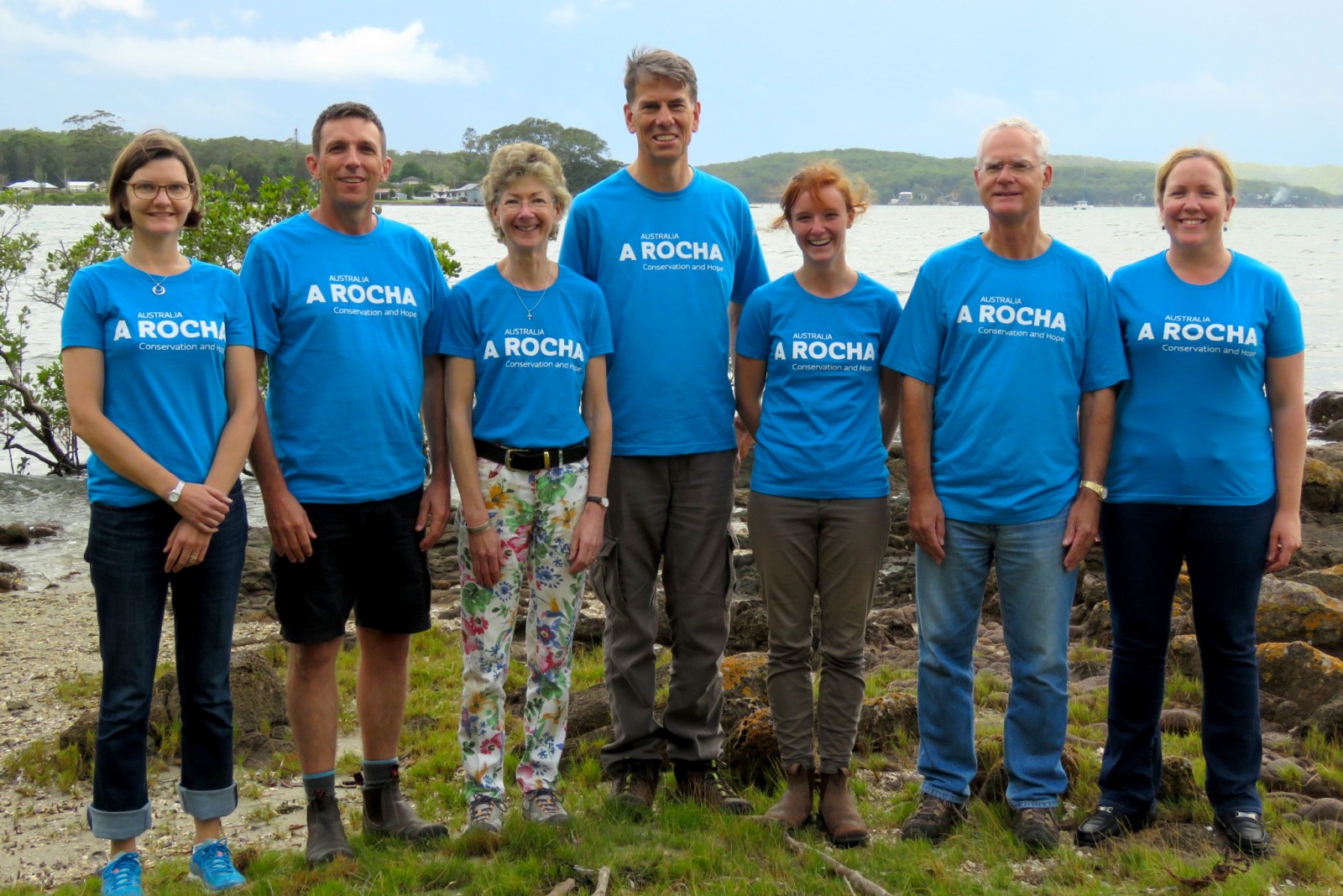A year on from the bushfires, burnt koalas, drought, and dead wildlife – and in the midst of Covid and its economic pain – I have been wrestling with hard questions about what I truly believe about God and how I live in Christ in hope and joy amongst the crises facing our climate and biodiversity.
What does the Bible have to teach through these? About God. About people. About His church. About me.
How do I maintain hope in God’s promises amid my anguish and anger?
How is God building His kingdom and reconciling His creation through Christ in all this?
While these have been shocking, they are not unexpected in Scripture and science.
I grew up in a farming family during the 1970s and '80s, living near the beach on the NSW North Coast. The coastal creek near my parents’ house is called Swimming Creek. I love that creek. I fished, swam, snorkelled, canoed, explored and played endless games there, and in the bush and beach. I always thought it would be just the same as when I was young; clear water, mullet schooling, cormorants diving, eels patrolling, wallabies watching, forest shrouding, cockatoos wheeling, cicadas crescendo-ing.
By the 1990s, though, overflowing sewage pipes and sediment erosion from the growing town polluted the creek. Algae replaced beautiful aquatic plants, the water turned muddy, the sound of mullet jumping no longer kept me awake. At one point, the pollution was so bad the Council set up a ‘No Swimming’ sign. Next to Swimming Creek!
Then, from 2000, the rising sea and storms started eroding the sand dunes that line the creek and protect houses on the street where my parents still live. Rows of old banksia trees that I have known and loved for 50 years fell into the Pacific Ocean. The foredune is gone, the rainforest on the dunes behind is more exposed. Looking ahead, if the world heats by another 1 or 2 degrees Celsius, these too will be lost, plus the houses behind.

Banksia trees killed by rising seas, Nambucca Heads, NSW.
I grieve over this loss. As a conservation scientist and environmental advocate, these concern me greatly. As a disciple of Jesus of Nazareth, I see this degradation as an outcome of rejection of God or a lack of spiritual transformation amongst God’s people, leading to greed, selfishness and apathy.
I don’t recall hearing sermons, or being part of Bible studies, during the first three decades of my life regarding God’s love for His creation, nor our role in using it wisely and caring for it. The environment and my faith were on parallel tracks, rarely intersecting, and occasionally colliding.
I would listen to speakers from Christian missionary organisations talk about roles they supported in gospel ministry. ‘Do you have roles for ecologists or conservationists?’, I’d ask. ‘No’ was the answer, occasionally with a furrowed brow. If mission agencies supported nurses to heal sick people, agricultural extension officers to help poor farmers grow food and teachers to educate illiterate kids, then why not — so my thinking would go — also support ecologists and conservationists to educate farmers and kids about how to understand and care for the wildlife and ecosystems that provided the healthy food, clean water and natural medicines that these same people relied upon?
For many years I felt I wore three hats that didn’t often sit well together: a disciple of Jesus, an ecologist and an environmental campaigner. I felt on the outer, often questioning whether it was right to love both the Lord and study and conserve wildlife.
Concern for the environment was often seen amongst believers as not particularly relevant, or a distraction, to faith. Scientists and conservationists thought Christian belief quaint, odd or to blame for deforestation and species extinction.
I sought out role models, people who took seriously God’s Word and caring for His world. They were scarce, and there were few books on the topic to help me juggle my hats.
That changed in 1998 as I read the notices section of the newsletter of the Sydney church where my wife, Lianne, and I worshipped. Between notices for upcoming evangelistic events was a two-line advert by a mission agency for an ecologist to study freshwater insects. In Lebanon. What?! I read it twice. What was this ‘A Rocha’? And why did a Christian organisation want to research and restore degraded wetlands in a country until recently convulsed by civil war and religious conflict?
That’s where my journey with A Rocha began.
Soon I was reading the book Under the Bright Wings by A Rocha co-founders Peter and Miranda Harris about how these two British missionaries had set up a field studies centre in Portugal. It was a long way from Peter’s role as a priest in the Church of England. They had done it to help people learn more about who God is through studying wildlife, experience life with Christians living in a cross-cultural community and read the Bible with a greater awareness of God’s love for His creation and Christ’s work of reconciling all things within it. As missionaries, they were supported by a mainstream missionary agency, working to show love for people and wildlife by doing research and conservation around an estuary.
Creation care, they called it. I no longer had to wear three hats, but just one.

Stuart on a bushwalk in Oxley Wild Rivers National Park, NSW, in April 2019.
Bible passages familiar and obscure took on deeper meaning. I increasingly saw nature conservation through a theological lens, which was part-affirming and part-convicting as the Spirit helped me understand both the joy of serving God through creation care and the personal cost this requires as a disciple in how I live. God’s command was to ‘take care’ of the garden of Eden, which I see as God’s direction to care for ecosystems and farm sustainably (Genesis 2:15).
King David observed ‘the earth is the Lord’s, and everything in it’ (Psalm 24:1), meaning we are stewards, not owners. What does that mean to me today? I am a citizen of a wealthy, high-carbon nation that is disproportionately contributing to heating God’s Earth. How must I change how I live and speak out in response to God’s commands that ‘You shall not murder’ and ‘You shall not steal’ (Exodus 20:13, 15) when extreme weather events amplified by climate change are killing millions and robbing billions of a safe climate?
I re-read Old Testament prophets who called on God’s people to show justice and mercy to the poor, widows and orphans (Zechariah 7:10, Isaiah 1:17, Jeremiah 22:3). And I read anew Jesus’ teaching to ‘love your neighbour as yourself’ (Mark 12:31). It struck me that choices I made regarding my food, car, house and job could indirectly impact people through global supply chains, global financial systems and the global climate. For good or ill, how I lived impacted them, wherever they lived. This made me both uncomfortable and joyful. I could obey God’s commands to care for and love the weak and marginalised — albeit in very small ways and indirectly—in how I lived.
I pondered why God seemed to know well and delight in flora and fauna across Testaments Old and New: sparrows, ospreys, lions, cedars, sycamore-fig trees, geckos, hyrax, papyrus, ants and jackals. If Jesus said we should ‘consider the lilies of the field’ (Matthew 6:28), then they must be important to the Lord.
I was confronted by my impacts and hypocrisy, and sometimes fatigued by the moral choices when buying stuff.
It was easier to blame others, but also dishonest. I have played a part in the degradation, from catching too many of the fish in my creek in my youth, to yielding to consumerism, to living a high-carbon life.
I started emailing people involved in A Rocha in different parts of the world, then talking by phone, then Skyping, then occasional visits to their field study centres and forums.
For perhaps the first time in my life, I met a group of committed believers who knew their Bible and wanted to see people saved, who saw ecology and conservation as a very worthwhile career and mission. To them, it was normal Christian discipleship and mission. They saw creation care as a gospel issue, and sought to live out their commitment to ‘take care’ of the Garden.
I didn’t have to defend myself to them. Or weather suspicion—or strong criticism—as being either wishy-washy as a Christian, unscientific as an ecologist or overly passionate as an environmentalist.
I felt like I had found my home.
In 2005, after much prayer and discussion with Lianne, plus a call with Peter Harris, I offered to be the contact in Australia for A Rocha members and to grow our membership. This meant taking over management of the database of Australians who were members or supporters of A Rocha from the highly organised Barbara Mearns of A Rocha International, who was managing this from Scotland. I was daunted! I struggle with organisation and administration. I was not sure whether I would help or hinder. However, I had come to realise I needed to stop thinking about trying to find a way of going overseas to work with A Rocha and commit myself to helping establish an A Rocha presence in my own country. This would one day become A Rocha Australia.
That meant mailing newsletters to members, responding to inquiries, telephone calls to members across the country and trying to meet members and supporters. This was made much harder when I moved with my wife and daughters from Sydney to Darwin for my job. Over the next several years, more believers contacted me asking what A Rocha was all about. I met people and spoke at meetings during work trips back to the south. I encouraged people in my Darwin church to get involved. Interest grew, but it was a hard slog living so far away from most of the members and having little funds for travel and hosting events.
I became discouraged, feeling like I was hampering A Rocha’s growth and letting people down who I thought expected me to do more. So, I apologised and stepped back from the coordination role, handing it over to the highly capable Ruth Colman, who faithfully served in the role as more people joined. During those years, Stephen and Pamela Seymour in Toowoomba hosted Skype calls to allow interested people to meet and plan and their church set up a website to help Christians interested in the environment.
In 2012, John and Juanita Anderson took on the volunteer role of leading Tahlee Ministries, a three-hour drive north of Sydney sandwiched between tall forest and a marine park. They soon developed a heart for using the former Bible College as a place for creation care and prayer. John was a former agricultural missionary and Baptist Minister, and Juanita had grown up on the mission field in Bolivia. They were just the right couple to champion an A Rocha project at Tahlee. I’m so grateful to them.
Roger Jaensch took on the role of chairing the project’s development, which drew on his love for Jesus, decades of work in bird and wetland conservation in Australia and the Asia-Pacific and experience running a non-government environment organisation.
A Rocha Australia formally began in October 2015 during a conference held at Tahlee that brought together people passionate about creation care from across southeast Australia. With the guidance and encouragement of Chris Naylor from A Rocha International, we laid the foundations for A Rocha Australia that would show God’s love for all creation through implementing the 5 Commitments of A Rocha: Christian, Conservation, Community, Cross-cultural and Cooperation.
Roger took on the daunting role of inaugural president for three years and now is the hardworking executive officer. My family had moved to Newcastle and I excitedly joined the board. Thanks to God’s grace and the support of an increasing number of members and donors, we have developed diverse partnerships in nature conservation, planted trees, surveyed birds, cleaned up plastic pollution, removed weeds, hosted conferences, developed networks, prayed, encouraged, produced theological resources and spoken at many events.
Many others have played major roles in thinking, praying, asking, reading and doing creation care that has helped establish and grow A Rocha over these past two decades: Mick Pope, Philip Hughes, Stuart Fleming, Anna Radkovic, Ross Jansen-van Vuuren, Sally Shaw, Paul Dettmann, Jen Schabel, Wendy Hoare, David Williams, Julia Jardine, Greg Stone, Isabel Lyons, and many more.
A Rocha Australia directors, April 2018.
Many churches were—and remain—disinterested. Some see creation care as of little theological import, and a few are hostile.
But this has changed in recent years, due in part to the very noticeable impacts of climate change and biodiversity decline. A Rocha Australia is more widely known, and, I hope, respected.
And so, I both lament the environmental loss happening, including in ‘my’ creek and sand dunes where I grew up, but have learnt to give to God my anxiety and anger.
I continue to seek and serve the Lord through creation care, to live in hope of a renewed heaven and earth (2 Peter 3:10–13, Revelation 21:1) and pray that believers will know the joy of a deeper walk with God through being involved in Christ reconciling all creation to himself (Colossians 1:15–20).
Dr Stuart Blanch is a follower of Jesus of Nazareth, worships at Charlestown Presbyterian near Newcastle, is an ecologist by training and an environmental advocate by passion. He serves as president of A Rocha Australia.

